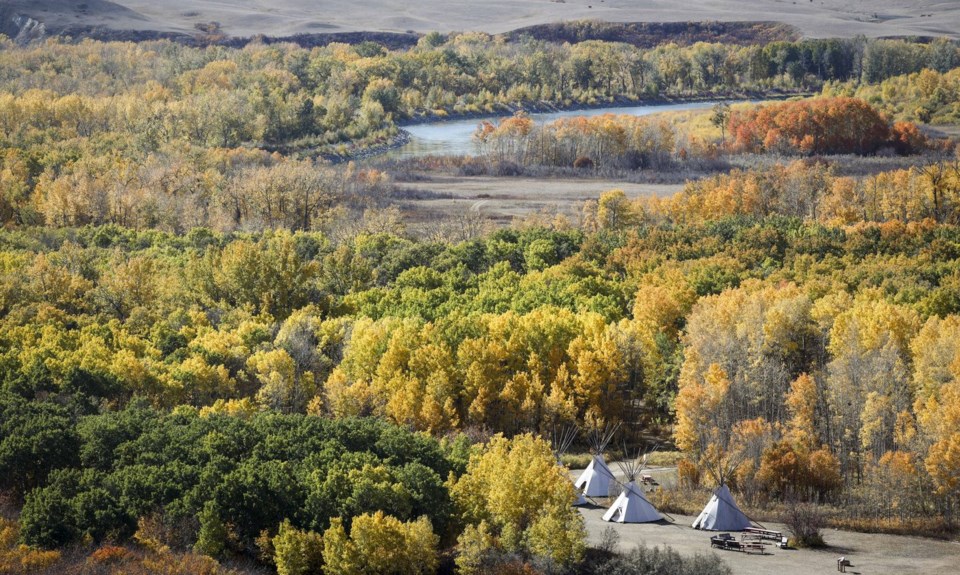A southern Alberta First Nation says it will fight a government decision on a dam that it says broke promises to take its concerns into account.
"The Siksika Nation will strenuously oppose this project with all resources and means available to us," says a Sept. 25 letter to Premier Danielle Smith from Chief Ouray Crowfoot. "The Siksika Nation is deeply disappointed by your government鈥檚 announcement."
On Wednesday, Alberta's United Conservative government said it had chosen a site for a dam on the Bow River to control flooding and aid water management. It said the Ghost Reservoir upstream of Calgary would be expanded.
鈥淚ncreasing water storage capacity is critical to protecting Calgary and other communities along the Bow River from future floods and drought," Environment Minister Rebecca Schulz said Wednesday in a release.
But the Siksika, the only First Nation downstream from the proposed dam, says that announcement was made without once hearing from the First Nation. It says the government broke its own promises and ignored technical advice by not talking to Siksika.
"We need to offer our input," said councillor Sam Crowfoot. "For them to put (forward) a project of this magnitude without any concern for Siksika Nation is serious to us.
"Litigation is one thing we're seriously considering."
In an emailed response, a spokesman for Schulz said talks will continue.
"We are moving forward with the Ghost Dam because it is the best option available," Ryan Fournier wrote.
"We are moving to the next phase of this project, but work is far from finished. We will continue to consult and further engage with Siksika Nation and other impacted communities."
Siksika has asked to be involved in the planning, not just reacting to a completed design.
Documents show the Siksika were included in the original talks about water management on the Bow. But when feasibility studies on different options were undertaken, the nation was told its concerns wouldn't be considered.
"We were told they were outside the scope of the study," Crowfoot said.
Environmental consultants hired by Siksika thought differently.
"The (terms of reference) lack any western science evaluation of impacts on Siksika lands, rights or title," said the June 2021 report from PGL Environmental Consultants. "The effects of flood mitigation need to consider the consequent magnitude, volume and timing of peak flows as they pass through Siksika land."
The province then promised talks with Siksika over water. The group was to meet quarterly but three years later has yet to convene, despite letters sent to environment ministers as early as July 2021 pleading for meetings.
"We've been ignored and brushed aside at every turn," Crowfoot said.
Siksika is distant from the proposed dam but has a major stake in the Bow. Its homes depend on wells recharged by the river's flow and 70 per cent of its water use is for Indigenous-owned farms and ranches.
As well, flooding in 2013 evacuated about a quarter of Siksika residents and destroyed the homes of 771 members. Nearly two-thirds of those on the reserve lost their water supply and large parts of the reserve remain unusable from flood risk.
"Whatever happens on the Bow River affects Siksika, full stop," Crowfoot said.
He said the nation isn't opposed to water management on the Bow. It just wants to be at the table.
Crowfoot said Siksika is prepared to do anything it needs to do to get Alberta to listen.
"We will do whatever we can."
This report by The Canadian Press was first published Sept. 26, 2024.
Bob Weber, The Canadian Press



